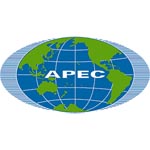APEC leaders mull new vision for growth
 Singapore - Leaders of the 21-nation Asia Pacific Economic Cooperation (APEC) grouping met Sunday to discuss a new approach to regional growth, winding up a two-day summit in Singapore.
Singapore - Leaders of the 21-nation Asia Pacific Economic Cooperation (APEC) grouping met Sunday to discuss a new approach to regional growth, winding up a two-day summit in Singapore.
Belatedly joined by US President Barack Obama, who arrived for the summit late Saturday night, the leaders met in a "retreat" forum that was expected to focus on new ideas.
"We expect our leaders to declare that the new paradigm for growth must entail elements of balanced growth, inclusive growth and sustainable growth," said Kuzuo Kodama, press secretary for the Japanese government.
Japanese Prime Minister Yukio Hatoyama met with Obama Friday in Tokyo, prior to the APEC summit, and discussed the need for a shift in global demand in the wake of the ongoing global economic crisis, which started in the US.
"Obama said American households are being encouraged to spend less and save more while here in Asia, China, Japan and South-east Asian households are advised to save less and spend more," Kodama said.
APEC groups 21 countries in East Asia and the Americas, including economic heavyweights such as the US, Mexico, Canada, China, Japan, South Korea and the seven largest economies of South-east Asia.
In Tokyo, Obama acknowledged that the US "has been disengaged" in recent years from regional organizations that promote security and prosperity in Asia, a reference to his predecessor George W Bush's rejection of international organizations.
Obama also announced US readiness to engage in the little-known free trade deal as an initial step towards molding a region-wide trade agreement with the Asia-Pacific.
The Trans-Pacific Strategic Economic Partnership Agreement (TPP) was set up in 2005 between Brunei, Chile, New Zealand and Singapore, and some hope it will be used as model for a region-wide trade pact for the Asia-Pacific.
Washington's willingness to join the TPP may prove an important gesture that the US is serious about re-engaging with the region, which many Asian leaders feel has been ignored.
APEC countries make up 55 per cent of the global economy. Sixty per cent of US exports go to other APEC countries, which also include Mexico and Canada.
Japan will host the next APEC summit in 2010, with the US scheduled to host the forum in 2011.
"These three years will be three years that identify this trend of change (for APEC)," Hatoyama said in a speech delivered to the APEC business summit on Saturday.
"APEC has the responsibility of building a new economic order," he added.
Both Hatoyama and Australian Prime Minister Kevin Rudd have proposed new more ambitious architectures for the region, that go beyond APEC's traditional concentration on trade and investment liberalization.
Rudd called for the establishment of a new Asia-Pacific Community, saying that the region needed one single organization combining political, economic and security issues on its agenda.
Hatoyama is pushing an East Asian Community, a still somewhat vague concept that envisions a shift in Asia's past economic and social priorities to be more people-focused, a reflection of the newly elected Japanese premier's policy shift at home.
"We're saying we have to shift from concrete to human beings," Hatoyama said. (dpa)